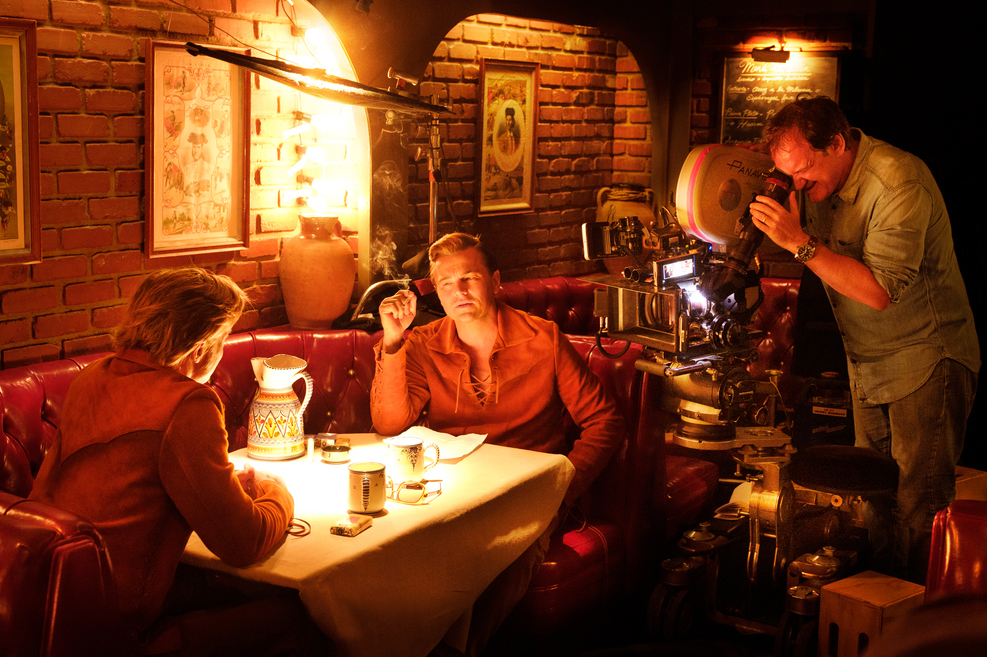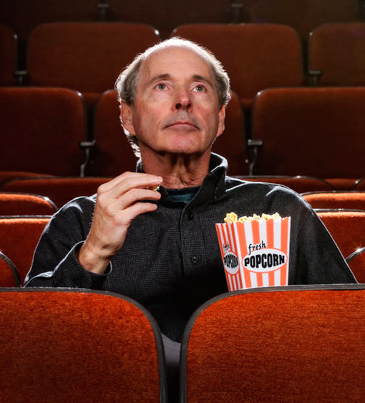'Once Upon a Time'…Professor Tom Doherty talked about Quentin Tarantino
 Courtesy of Sony Pictures
Courtesy of Sony PicturesQuentin Tarantino behind the camera with Brad Pitt (back to camera) and Leonardo DiCaprio in a scene from "Once Upon a Time in Hollywood."
Quentin Tarantino’s ninth film, Once Upon a Time in Hollywood, was released on July 26 to immediate critical acclaim and box office success. The movie’s cast includes Brad Pitt, Leonardo DiCaprio, and Margot Robbie and takes place in 1969 Los Angeles, where a television actor and stunt double navigate the changing film industry. BrandeisNOW spoke to American studies professor and film expert Thomas Doherty about Tarantino and his most recent success in Once Upon a Time in Hollywood.
Quentin Tarantino has only made nine films and for the most
Well, if not unique than exceedingly fortunate. Of his nine films, only one — his last outing, The Hateful Eight (2015) — got universally panned. I think one of the reasons we’re all so thrilled about Once Upon a Time in Hollywood (and I admit I was among the Tarantino-

Professor Thomas Doherty
How is Tarantino able to stay relevant and keep his movies fresh despite the many changes in the film industry?
The obvious answer is talent: he has an effortless command of film technique, he attracts great actors, and, in a cinematic world given over to grunts and catchphrases, his dialogue is just stone eloquent — witty, smart, musical, vernacular-heavy. Also, and this is especially important for a period piece like OUATIH, he has a great eye for detail. The film critic Andrew Sarris wrote, “Never trust an artist who doesn’t pay attention to the details.” Tarantino’s recreation of Hollywood, 1969-— the music, posters, ads, clothes, and lingo — is like a flashback without the acid hangover.
Could you see Tarantino switching to television?
Well, anything is possible — TV sure is attracting some of the best writing
There’s a new king of the hill in terms of
Doubtful. For a Hollywood film to shoot into the billion-dollar-gross stratosphere it has to play globally and it has to play to adolescents and younger.
Categories: Humanities and Social Sciences





